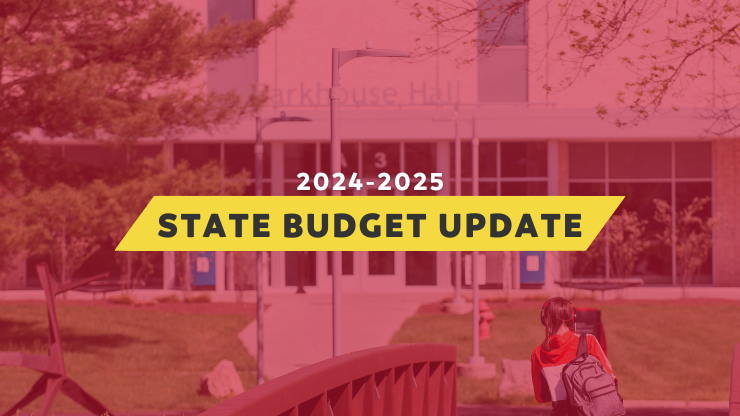
The fiscal year 2024-2025 state budget was passed by the General Assembly and signed by Governor Shapiro on July 11. The budget includes a 6% increase in operating funding for Pennsylvania's 15 community colleges.
On July 11, the FY 2024-2025 state budget was passed by the General Assembly and signed by Governor Shapiro. This budget includes a 6% increase in operating funding for PA’s 15 community colleges, translating to about an additional $1.42M for Montgomery County Community College. Capital funding was level funded for this fiscal year. The agreement also includes several policy changes and initiatives that benefit the College and students.
PA’s community colleges collectively requested an 8% increase in operating funds, 15% for capital funding, and $2 million to reimburse costs incurred during last year’s impasse and delay in funding. While the enacted budget is less than requested, the increase in operating funds is more than what was proposed by the Governor in February. This progress is a direct result of MCCC’s advocacy and collective engagement with legislators and the Shapiro Administration. Data has shown that Montgomery County had, by far, the highest response rate in the state in response to MCCC’s call-to-action campaign in June.
In addition to the FY 2024-2025 appropriation, the following notable higher education legislation was also enacted. See the summary for more details.
- Seamless Transfer: Allows any community college student who graduates with an AA, AS, AFA, or AAS degree to transfer to any public institution of higher education in PA at full junior status. Subject to capacity, the student also is guaranteed admission as long as they meet the program criteria.
- Dual Credit Grant Program: Establishes a grant program within the PA Department of Education (PDE) to provide tuition-free dual enrollment courses, student supports, or professional development to high school teachers to teach dual enrollment courses.
- Grow PA Scholarship Grant Program: Establishes a grant program within the PA Higher Education Assistance Agency (PHEAA) to provide $5,000 per academic year for students who pursue a high-demand occupation and agree to live in the state and work in that industry for 15 months following graduation. If they do not stay in PA, the grant converts to a loan that must be repaid.
- State Board of Higher Education: Establishes a new board within the PDE to develop a higher education strategic plan, consult with stakeholders, and make policy recommendations.
It is important to note the merger of the PA State System of Higher Education (PASSHE) and community college systems, as well as the $1,000 cap per semester on tuition as proposed by Governor Shapiro, is not included in this budget agreement. MCCC, along with fellow community colleges in the state, had significant concerns with each of these proposals. Their exclusion again demonstrates the level of MCCC’s engagement with the Shapiro Administration and legislators, as well as their willingness to hear MCCC’s concerns and develop policies that honor the independence of community colleges and maintain local control.
